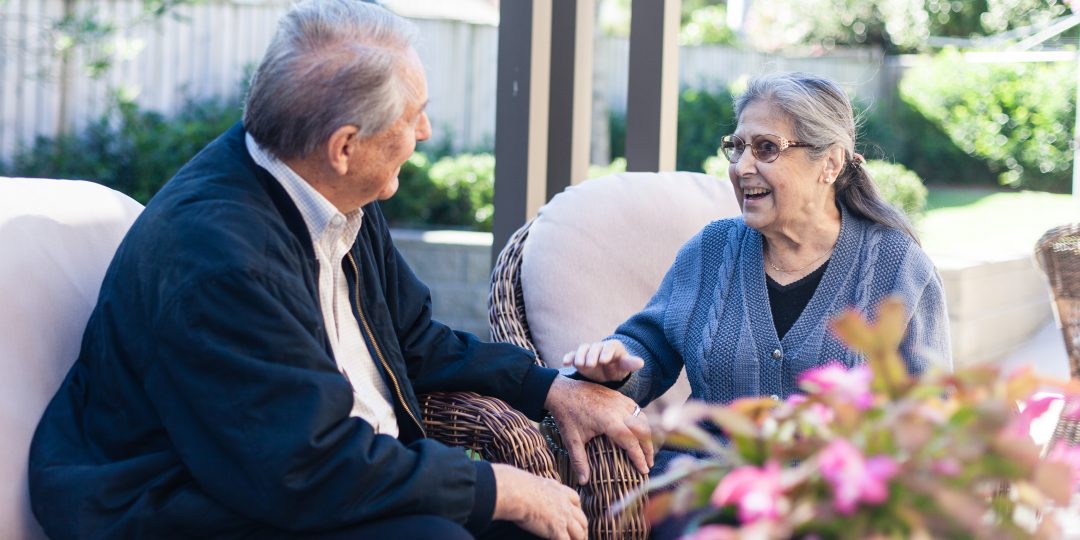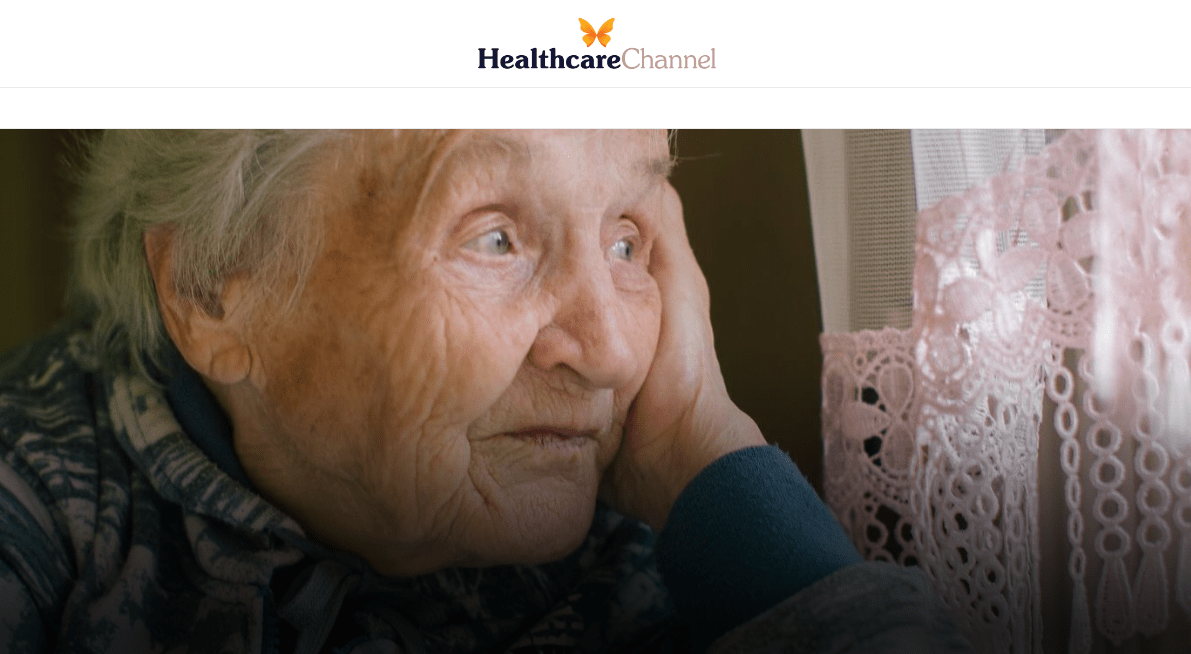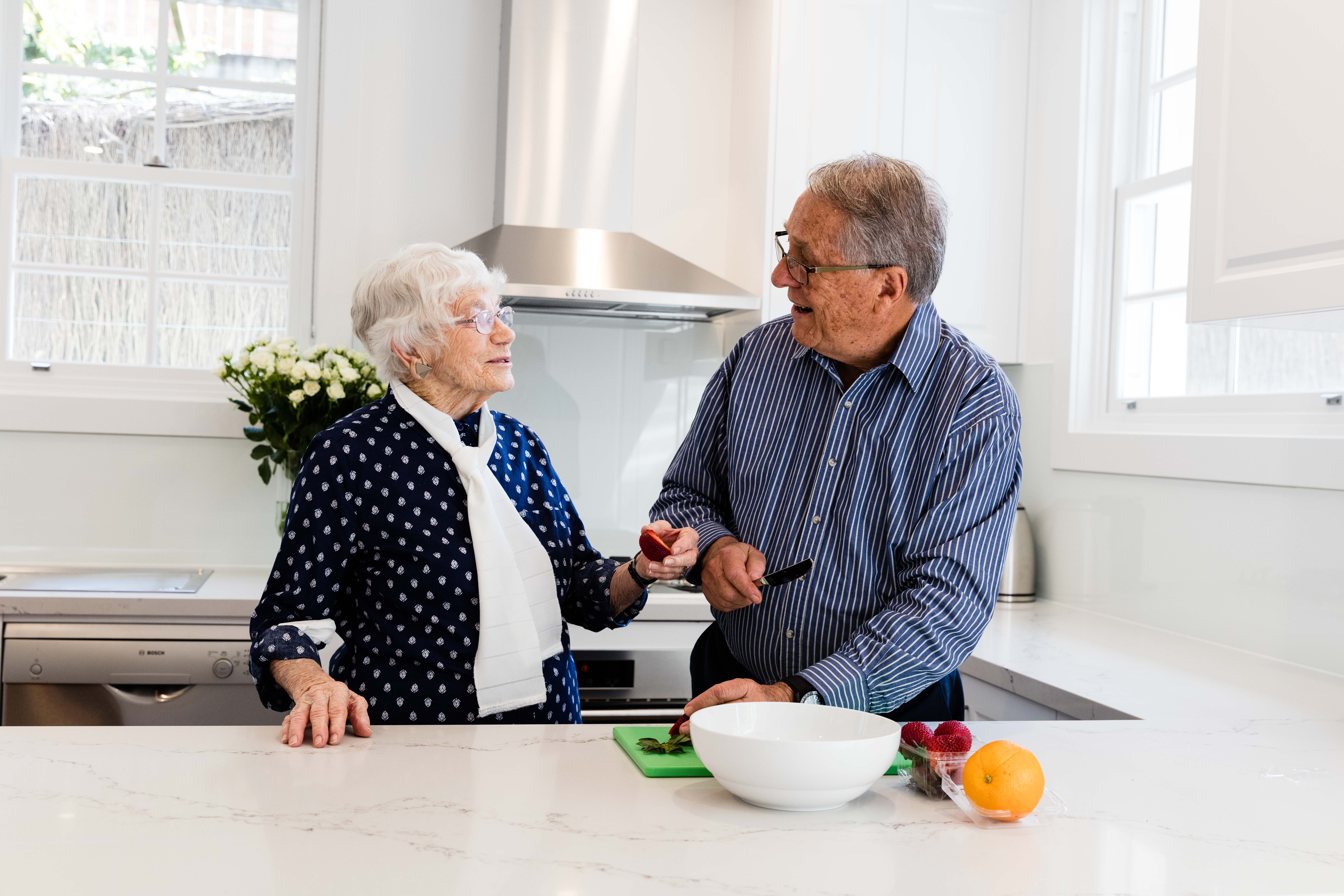It seems every day a story on dementia pops up in the media: the growing number of people diagnosed, the search for what causes it, or a possible cure. In fact, if you google the word “dementia” there is more than 94,900,000 search results! The fear of dementia comes through loud and clear, but what lies behind it? How can we face these fears and humanise our approach to people living with dementia in our local communities?
We spoke to Founder and Co-CEO of Group Homes Australia, Tamar Krebs:
What are we afraid of?
Often when I talk with families about their loved ones living with dementia, they are frightened about the progression of dementia. They’re frightened that people with dementia will become aggressive, or agitated, or physically unmanageable. They relay the horrible images from their minds from the ‘old days’ of asylums, and that every person with dementia will end up in a similar situation. Fear of the unknown and lack of control are stressful issues for families too. No one can know how a person’s individual journey will unfold: it’s different for each person. It depends on so many different factors that are out of our control.
Dehumanised care
As a society we have dehumanised people with dementia for far too long. We have locked people with dementia away in high security facilities. Fear of dementia has driven a focus on safety and managing risks, but along the way we have forgotten that there’s a human being who is certainly feeling very vulnerable. We have allowed people living with dementia and people caring for people with dementia to feel very alone and very isolated – there’s a great disconnect.
Involvement in communities
We need to bring people with dementia back into their community where they can be involved in things that they find meaningful and purposeful, and have true relevance. We need to relook at our communities and ask, how can we do things differently? How can we do things better for people living with dementia?Thankfully, projects are being implemented around Australia (and in many parts of the world) with the goal of developing ‘dementia-friendly communities’: helping people with dementia stay closely connected to their local community and their familiar environments, and not excluding them from society.
Adapt to interact
Learning more about dementia and how to connect with people with dementia can help with facing fears and promoting humanised care. The person living with dementia is doing the best that they can: families, friends, care staff and whole communities need to adapt. Learning how to adapt our care, approach and living environments can have a huge impact. We know that we can create physical spaces and places that enable people living with dementia to flourish.
Families
Families need to adapt too, because families can certainly exclude people with dementia, even though they do not mean to. Although families are grieving the diagnosis and trying to map their way through an uncharted landscape, there is no one direction that is going to work for all. There is the journey of loss, the journey of grief and the journey of celebrating your loved one in the moment.
The last word
Humanising dementia and acknowledging the journey for the family and the person living with dementia is the first step to changing our communities.
If we can assist with answering any further questions, please don’t hesitate to contact our Resident Relations Manager for support on 1300 015 406 or email Group Homes Australia Home Support Office. The Group Homes Australia (GHA) care model is firmly built on the belief that people living with dementia thrive in a home environment. GHA homes are ordinary homes, on ordinary suburban streets, where 6 to 10 residents live together. Residents have 24-hour care, provided by a team of staff that we call ‘Homemakers’.







0 Comments